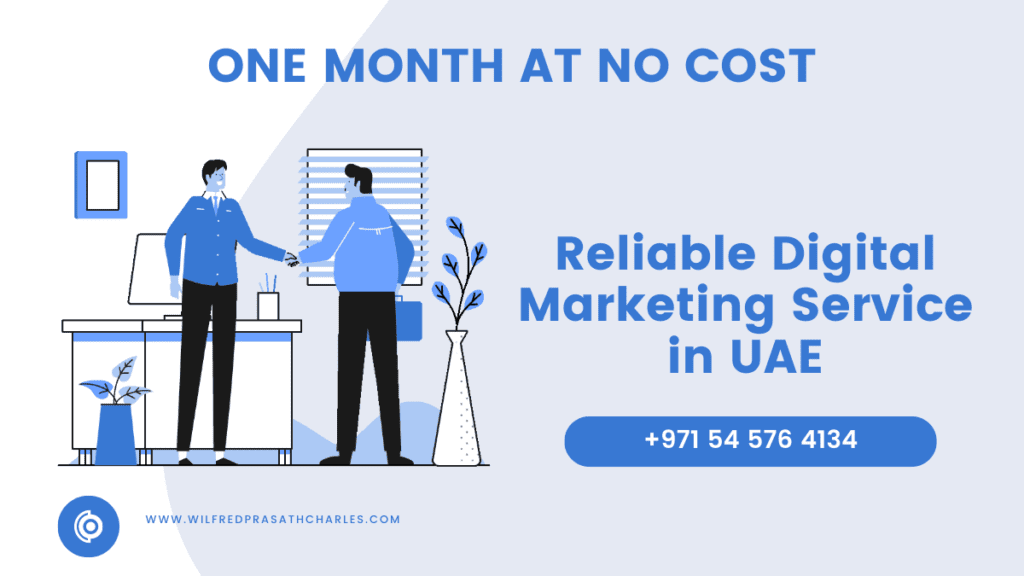
Table of Contents
What is Search Engine Optimization (SEO)
Search Engine Optimization, or SEO, is the process of improving the quality and quantity of traffic to a website from search engines through organic search results. The goal of SEO is to increase the visibility of a website or a web page in search engine results pages (SERPs) for specific keywords or phrases, with the aim of driving more relevant traffic to the website.
SEO involves various techniques and strategies, including:
The Importance of SEO
One of the primary reasons businesses invest in Search Engine Optimization is to improve their website’s ranking on search engine results pages. When users search for products or services related to a business, they are more likely to click on the top-ranked results. In fact, studies show that the first five organic search results receive the majority of clicks. Therefore, businesses that rank higher on search engine results pages are more likely to attract visitors to their websites and generate leads and sales.
In addition to improving online visibility, Search Engine Optimization can also help businesses establish their brand as a thought leader in their industry. By creating high-quality content that provides value to their target audience, businesses can attract more visitors to their websites and establish themselves as a trusted authority in their industry.
How Search Engine Optimization (SEO) Works
SEO involves various techniques that businesses can use to improve their website’s ranking on search engine results pages. These techniques include:
Keyword Research
This involves identifying the keywords and phrases that users search for to find information related to your business, and optimizing the website’s content around those keywords.
On-Page Optimization
This refers to the process of optimizing individual web pages to improve their relevance to specific keywords and phrases. This involves optimizing various on-page elements, such as title tags, meta descriptions, header tags, and image alt tags.
Off-Page Optimization
This involves building high-quality backlinks from other websites to the website being optimized, which helps increase its authority and relevance in the eyes of search engines.
Technical Optimization
This involves improving the technical aspects of your website, such as page speed, mobile responsiveness, and security. A fast-loading, mobile-friendly website that is secure and easy to navigate will provide a better user experience and improve your website’s ranking on SERPs.
Content Marketing
By creating high-quality content that provides value to your target audience, you can attract more visitors to your website and improve your online visibility. Content marketing can take many forms, such as blog posts, infographics, videos, and social media posts.
Link Building:
Links from other websites to your website can significantly improve your website’s ranking on SERPs. However, not all links are created equal. Links from reputable, high-authority websites are much more valuable than links from low-quality or spammy websites.
Social Media:
By sharing your content on social media, you can attract more visitors to your website and improve your online visibility. Additionally, social media signals, such as likes, shares, and comments, can help improve your website’s ranking on SERPs.
Local Search Engine Optimization (SEO):
This involves optimizing your website for local search results to attract more local customers to your business. Local Search Engine Optimization (SEO) involves various techniques such as optimizing your Google My Business profile, adding your business to local directories, and creating local content.
Key Strategies for Improving Search Engine Optimization (SEO)
To improve your website’s ranking on SERPs, there are several key strategies that businesses can use:
- Conduct Keyword Research: Identify the keywords and phrases that your target audience is using to search for products or services related to your business. Incorporate these keywords into your website to improve your website’s relevance to search engines.
- Optimize Your On-Page Elements: Optimize various on-page elements such as title tags, meta descriptions, header tags, and image alt tags to improve your website’s relevance to specific keywords and phrases.
- Create High-Quality Content: By creating high-quality content that provides value to your target audience, you can attract more
Conclusion
Search Engine Optimization (SEO) is a long-term strategy that requires ongoing effort and investment. The benefits of Search Engine Optimization (SEO) include increased visibility, traffic, and brand awareness, as well as a higher return on investment (ROI) compared to traditional advertising methods. A well-executed Search Engine Optimization (SEO) strategy can help businesses establish a strong online presence, attract more customers, and achieve their marketing goals and objectives.
As a digital marketing agency in UAE, we can offer a comprehensive range of services to help them achieve their online marketing goals. Conducting a thorough SEO audit of their website can identify areas for improvement and create a tailored strategy to boost their search engine rankings.
On-page optimization and off-page optimization techniques, such as building high-quality backlinks, can improve their website’s relevance and visibility on search engines. Local SEO can help them to target their local customers, and content marketing can create engaging and informative content to attract and engage their target audience.
Social media marketing can build their brand and increase engagement, and PPC advertising can drive targeted traffic to their website, increase leads, and generate sales. By combining these services, we can help your business to maximize its online potential, increase its website traffic, and grow its business in the UAE and beyond.
How we can be a help
